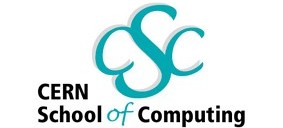|
|
 |
|
|
|
|
|
Participants at CSC2007
The following people have been selected for the 2007 CERN
School of Computing, as of July 15, 2007.
|
Jaroslaw MISZCZAK |
Polish Academy of Sciences, Gliwice - Poland |
|
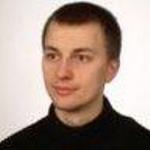 |
Currently I
am working on the experimental programming language which could be used to
control quantum computer. I use Java as an implementation language and ANTLR
compiler construction framework for implementing parser and AST parser. Java
was chosen because it allows adding new data types to my language easily. At
the moment only basic interpreter works. I am familiar with the Mathematica
and I use it quite often for testing new ideas and models. I have working
experience in Python programming language (I have developed a SVG module for
the Fraunhofer Quantum Computing Simulator: http://www.qc.fraunhofer.de/impressum)
and GNU Octave (I work on package for quantum computation: http://quantum-octave.sf.net/).
I use PHP and MySQL as an administrator of the Quantiki project (http://www.quantiki.org)
and Perl for system administration tasks. |
|
|
|
|
Srecko MOROVIC |
"Ruđer
Bošković" Institute, Zagreb - Croatia |
|
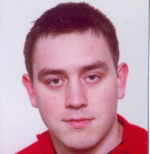 |
I am
currently a volunteer working for the Particle physics group at Institute
Ruder Boskovic in Zagreb, Croatia, applying for a PhD student position which
I am looking forward to obtain in June 2007. Since 27th February 2007. I am
working at CERN, in CMS ECAL DAQ group on a Java RCMS "function manager" for
the ECAL subsystem. I also participate in algorithm development for
(electroweak WZ) electron reconstruction analysis and participated in CMS
HLT online-selection software development. I had experience with low-level
hardware programming and emulation, as I actively participated in an open
source project ("DosBox") oriented to emulation of legacy PC hardware and
its peripherals. I keep interest in tracking development of important open
source projects such as, for example, Linux kernel or X.Org. I am quite
familiar with GNU/Linux system architecture and had been administrating a
SLC3 Linux-based network at IRB, Zagreb.
|
|
|
|
|
Manfred MUECKE |
University of Vienna
- Austria |
|
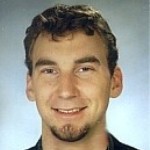 |
I studied
electrical engineering with emphasis on telecommunication and computer
architectures. I am interested in design and implementation of languages and
compilers to enable more efficient description and synthesis of complex FPGA-based
computing systems.
I wrote my PhD
thesis at CERN, focusing on design methodologies for digital signal
processing on FPGAs. All LHC experiments use FPGAs in their data acquisition
systems at medium trigger levels. It was therefore a most exciting work
environment.
Currently, I am
working on the optimization of molecuar dynamics simulations. |
|
|
|
|
Annika NORDT |
Darmstadt University of Technology - Germany |
 |
Since spring
2005 I am working as PHD student in the astroparticle group of TU Darmstadt
in Germany, which participates in the CERN CAST experiment. My work is
mainly the data analysis of the CCD detector of CAST as well as Monte Carlo
simulations. My special interests are in physics experiment simulations,
distributed computing and Grid computing and I would like to deepen my
knowledge of modern techniques for software design, tools and technologies.
|
|
|
|
|
Andrzej NOWAK |
CERN,
Geneva - Switzerland |
|
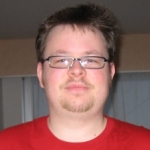 |
Andrzej Nowak has been working at CERN openlab, a
partnership between CERN and the industry (Intel, HP, Oracle), since 2007.
His early research concerned operating systems security, mobile systems
security, and wireless technologies. During his studies in 2005 and 2006,
Andrzej worked at Intel, where he researched custom performance
optimizations of the Linux kernel and took part in developing one of the
first 802.16e (WiMax Mobile) wireless MAN networking standard
implementations. Soon after obtaining his diploma, he joined openlab in
January 2007. Andrzej deals mostly with multi- and many-core architectures
and parallel processing. Another significant area of his work is platform
optimization and performance assessment. |
|
|
|
|
Bob OLIVIER |
Max Planck Institut für Physik, Münich - Germany |
|
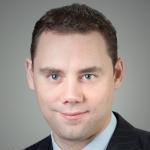 |
I am an
experimental high-energy physicist from the University Pierre and Marie
Curie, Paris, where I started my PhD in 1998. I was sent to Fermilab at
Chicago, where I worked with the D0 experiment. This meant writing online
software to handle communication tasks from the control room to various
hardware, GUI's with Python, offline reconstruction algorithms and data
analysis code using ROOT. Since 2001 I am working for the H1 experiment at
DESY. I developed an automatic histogram-based data quality tool intensively
used by the collaboration. This included various scripting languages to
handle daily hundreds of batch jobs running the H1 analysis software based
on ROOT, and a cgi end-user Web interface. Calorimeter trigger upgrades lead
to software development on LynxOS. So far I did quite some computing and
want to do more. My next projects at ATLAS and ILC will greatly benefit from
what I will learn at the CSC on GRID, modern software design, Web services,
and HEP computing. |
|
|
|
|
Alfredo PAGANO |
INFN-CNAF, Bologna - Italy |
|
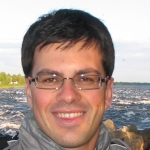 |
I am mainly
involved in the operations and user support for the Italian Grid
infrastructure and EGEE project. Site manager for the INFN-CNAF site, I work
in strict contact with our Tier1. In the SA1 activity I represent one of the
three COD members of the Italian federation. Each federation, following a
rotating shift, is responsible for detecting problems of EGEE Grid,
coordinating the diagnosis, and monitoring the problems through to
resolution. This is done in cooperation with the Regional Operations Centers
(ROC). Furthermore, always inside the COD group, with my colleague A.Cavalli
I develop failover solutions for EGEE Core services. A partial
geographically distributed failover solution for the monitoring systems of
the WLCG-EGEE has been put in place and in continues improvement. I obtained
last year a master degree in computer science with full marks. |
|
|
|
|
Senka PINTARIĆ |
"Ruđer
Bošković" Institute, Zagreb - Croatia |
|
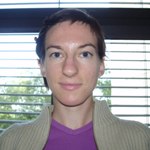 |
I recently
finished my diploma thesis where I was looking for possibilities of
anomalous vector boson coupling signal detection in the CMS detector. In the
summer of 2005 I was at CERN as summer student working on ATLAS muon endcap.
Now I started working on CMS Trigger and learning programming in C++.
|
|
|
|
|
Tatevik POGHOSYAN |
Yerevan Physics Institute - Armenia |
|
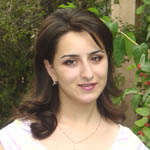 |
I am working
since 2003 in the Yerevan Physics Institute (YerPhI) group, which
participates in the ALICE and NA60 experiments as well as in the Grid
activity of CERN. At the early stages I was involved in the performance
studies and simulations for the ALICE detector. In 2004, I have started data
analysis of NA60 experiment, which constitutes my PhD thesis. Within the
Grid activity of the YerPhI group, I am fulfilling the duties of the
administrator for the ArmeSFo Certification Authority, accredited member of
EUGrid PMA. This work comprises Linux system administration, Linux Bash
shell programming and OpenSSL framework usage.
|
|
|
|
|
Giovanni POLESE |
CERN,
Geneva - Switzerland |
|
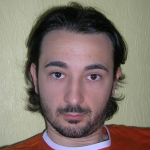 |
My work is
focused on the installation, commissioning and start-up of the Detector
Control system (DCS) for the Resistive Plate Chambers in the CMS experiment.
I have designed, implemented and tested the RPC DCS for controlling and
monitoring all the detector working parameters. In details he has developed
the control system, using a commercial SCADA, PVSS II, and the JCOP
Framework, both common to all LHC experiments, for controlling and
monitoring the slow control. This software tool is running on windows and
Linux machine and use a C-like programming language. Therefore part of the
work is based on the archiving of PVSS data on an Oracle DB and on the
development of the db structure using PL/SQL. Other important task I am
involved, is the design and development of a XDAQ application for the
configuring of the RPC front-end electronics and their communication with
Link Board. XDAQ is a programming toolkit for distributed data acquisition
systems, running on linux and based on C++. |
|
|
|
|
Branislav POLETANOVIC |
Physikalisches Institut der Universität Bonn - Germany |
|
 |
I am
currently working on my PhD thesis in Astroparticle Physics on a topic
related to the dark matter and dark energy problem. Astroparticle physics
provide a number of possible candidates to solve this problem, especially
when we take Supersymmetry into account. We are focusing on the axino. In
our work we have to make extensive numerical simulations to solve the
Boltzmann equation under consideration of a large set of parameters and the
relevant thermal production processes.
|
|
|
|
|
Dunja POLIC |
Technical University of Split - Croatia |
|
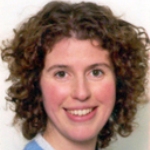 |
I am a first
year graduate student of particle physics at University of Zagreb, Physics
Department, and I work at Technical University of Split as teaching
assistant. At present time, I am mainly concentrated on studying for exams
and learning software tools that will be required for my work in physics. I
have just registered to CMS experiment on CERN, as a part of group of people
from Split who work on that experiment. My work will be related to ECAL.
|
|
|
|
|
Biagio ROSSI |
University of Bern - Switzerland |
|
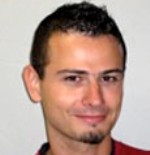 |
I am
presently working on the development of novel liquid argon TPC detectors for
the next generation of neutrino experiments and on the study of glass
capillary targets filled with liquid scintillator readout by optoelectronic
chains. In these projects, I am particularly interested in the cryogenic
technology, in the calibration of the detectors with radioactive sources and
UV laser beam, in the readout and DAQ systems, and in developing suitable
event reconstruction algorithms, as well as analysis tools.
|
|
|
|
|
Tatiana RYBITSKAYA |
Budker Institute of Nuclear Physics,
Novosibirsk
- Russia |
|
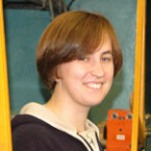 |
My current
work at the Injector complex VEPP-5 of Budker INP is related to the
development beam dynamics simulation code, which uses macroparticle method,
for electron linac tuning automation. This requires knowledge of distributed
network process programming (including communication with distributed
control system) as well as an understanding of the accelerator physics. |
|
|
|
|
Jose Afonso SANCHES |
Universidade do Estado do Rio de Janeiro - Brazil |
|
 |
I am a
member of one of the Monte Carlo production teams (LCG7 at CERN). It
includes the operation and configuration of the software used (ProdAgent),
plus keeping track of, and reporting possible jobs' errors to the CMSSW/Grid
people. - Also, I am being trained as a CMSSW TroubleShooter, which relates
to helping CMSSW users to solve their problems.
|
|
|
|
|
George SERBANUT |
INFN / University of Turin - Italy |
|
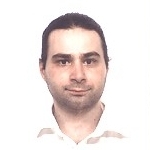 |
I am doing
Monte Carlo simulations for PANDA (antiProton ANnihilation in DArmstadt)
based on ROOT and GEANT4. Mostly, I am working under LINUX (SL4), but from
time to time I develop my applications also under Cygwin (MS Windows).
|
|
|
|
|
Syed Yousaf SHAH |
CERN,
Geneva - Switzerland |
|
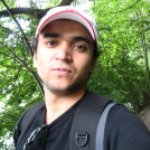 |
Currently I
am working at CERN on Detector Control and Safety System for CMS experiment.
Since last year I have been working on various tasks for Data Acquisition
system (DAQ) and Control System. My Current development suit consists of
Large Scale SCADA system using ETM-PVSS-II on Windows and Linux System, PLCs,
Oracle 9i and Java. Gluing them together I am designing and developing a
control and safety system for Tracker. Previously I have been working on DAQ
using Run Control and Management System (RCMS) for Finnish Cosmic Rack (FinnCRack).
|
|
|
|
|
Jingyan SHI |
IHEP, Beijing – China (Republic of) |
|
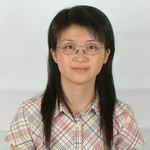 |
I am a PhD
Student working at the computing Center of Institute of High Energy Physics
(IHEP). This is my third year of study. Now, I am involved in the project
which aims to provide a high efficient computing environment for the Beijing
Spectrometer III (BES-III) offline job running on both local PC farm and
grid. BES-III is the new detector of the Beijing Electron Positron Collider
II (BEPC-II), which is a high luminosity, multi-bunch collider. My main task
is to provide a robust job management system for BES-III physicists. |
|
|
|
|
Rodrigo SIERRA |
CERN,
Geneva - Switzerland |
|
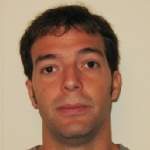 |
I am
currently working at CERN in the Communication Systems group. I’m the
responsible for the fix telephone network, including its maintenance,
upgrade and support. I’m also the responsible for the audioconference
and IP telephony systems, evaluating the necessities and looking for
suitable solutions at CERN. Part of my duties consist of developing
management and monitoring tools for the service, facilitating the
maintenance and troubleshooting at the same time we automate several
service tasks.
|
|
|
|
|
Vasily SIMUTKIN |
Uppsala University - Sweden |
|
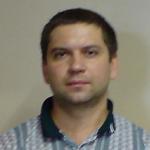 |
I am a PhD
student of the Department of Neutron Research and my current work is devoted
to the measurement of the U238 fission cross-sections for the neutron energy
of 175 MeV at the neutron beam facility of The Svedberg Laboratory. The
SVEDAQ system (http://nsg.tsl.uu.se/~nyberg/tsl/svedaq/welcome.html) is used
for the data acquisition and the ROOT framework for the offline data
analysis. |
|
|
|
Last edited:
30-Jan-08
|
|
